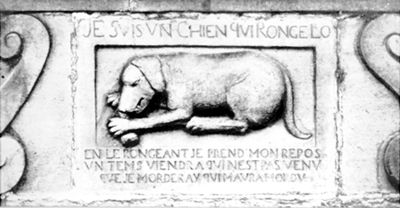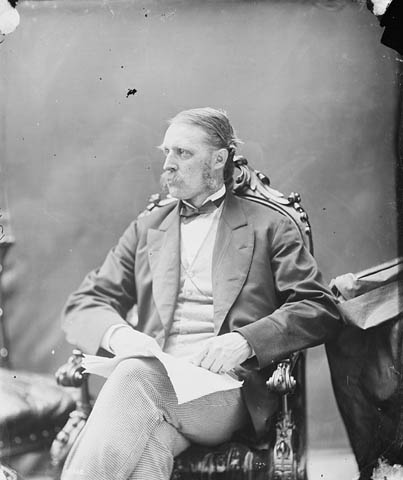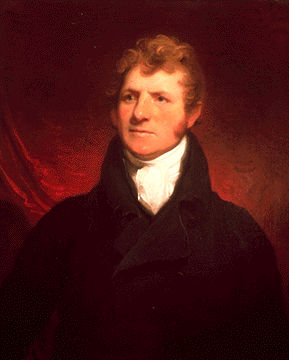Browse "History/Historical Figures"
-
Article
William Jackman
William Jackman, sealing captain, sailing master (b at Renews, Nfld 20 May 1837; d at St John's 25 Feb 1877). William, like his famous brother, Capt Arthur JACKMAN, was at an early age involved in the Labrador cod fishery and in the seal hunt.
"https://development.thecanadianencyclopedia.ca/images/tce_placeholder.jpg?v=e9dca980c9bdb3aa11e832e7ea94f5d9" // resources/views/front/categories/view.blade.php
https://development.thecanadianencyclopedia.ca/images/tce_placeholder.jpg?v=e9dca980c9bdb3aa11e832e7ea94f5d9
-
Article
William Kennedy
William Kennedy, explorer (born 26 April 1814 probably at Cumberland House, Rupert's Land; died 25 January 1890 at St Andrews, Red River Settlement).
"https://development.thecanadianencyclopedia.ca/images/tce_placeholder.jpg?v=e9dca980c9bdb3aa11e832e7ea94f5d9" // resources/views/front/categories/view.blade.php
https://development.thecanadianencyclopedia.ca/images/tce_placeholder.jpg?v=e9dca980c9bdb3aa11e832e7ea94f5d9
-
Article
William Kirby
William Kirby, novelist, journalist (b at Kingston-upon-Hull, Eng 23 Oct 1817; d at Niagara-on-the-Lake, Ont 23 June 1906).
"https://d2ttikhf7xbzbs.cloudfront.net/media/media/d702e021-abbd-446b-994d-514e8437f939.jpg" // resources/views/front/categories/view.blade.php
https://d2ttikhf7xbzbs.cloudfront.net/media/media/d702e021-abbd-446b-994d-514e8437f939.jpg
-
Article
William Lyon Mackenzie King
William Lyon Mackenzie King, prime minister of Canada 1921–26, 1926–30 and 1935–48 (born 17 December 1874 in Berlin [Kitchener], ON; died 22 July 1950 in Kingsmere, QC). William Lyon Mackenzie King was the dominant political figure in an era of major changes. He was leader of the Liberal Party from 1919 to 1948, and Prime Minister of Canada for almost 22 of those years. King was Canada’s longest-serving prime minister. He steered Canada through industrialization, much of the Great Depression, and the Second World War. By the time he left office, Canada had achieved greater independence from Britain and a stronger international voice. It had also implemented policies such as employment insurance.
"https://d2ttikhf7xbzbs.cloudfront.net/media/media/ffcad153-bc06-4c51-b9a1-de66b2b6cc7b.jpg" // resources/views/front/categories/view.blade.php
https://d2ttikhf7xbzbs.cloudfront.net/media/media/ffcad153-bc06-4c51-b9a1-de66b2b6cc7b.jpg
-
Article
William McDougall
William McDougall, QC, lawyer, journalist, politician, lieutenant-governor of Rupert’s Land and the North-Western Territory (born 25 January 1822 near York, Upper Canada; died 29 May 1905 in Ottawa, ON).
"https://d2ttikhf7xbzbs.cloudfront.net/media/media/9ddafbc1-03ba-4b0e-8170-12c0f6071ed2.jpg" // resources/views/front/categories/view.blade.php
https://d2ttikhf7xbzbs.cloudfront.net/media/media/9ddafbc1-03ba-4b0e-8170-12c0f6071ed2.jpg
-
Article
William McGillivray
During the War of 1812 he commanded a company of voyageurs, assisting General BROCK at the capture of Detroit. As leader of the NWC, he presided over a period of intense competition with the Hudson's Bay Co that ended when the companies united in 1821.
"https://d2ttikhf7xbzbs.cloudfront.net/media/media/c979e2b2-567d-4bcf-a27b-273edd7519fd.jpg" // resources/views/front/categories/view.blade.php
https://d2ttikhf7xbzbs.cloudfront.net/media/media/c979e2b2-567d-4bcf-a27b-273edd7519fd.jpg
-
Article
William McIntosh
William McIntosh, fur trader (b at Grand Rapids, US 1784; d 16 Feb 1842). By 1816 a wintering partner in the North West Company, he had previously been positioned at Lesser Slave Lake (1803) in the Peace River country (1805) and at Fort Vermilion (1815).
"https://development.thecanadianencyclopedia.ca/images/tce_placeholder.jpg?v=e9dca980c9bdb3aa11e832e7ea94f5d9" // resources/views/front/categories/view.blade.php
https://development.thecanadianencyclopedia.ca/images/tce_placeholder.jpg?v=e9dca980c9bdb3aa11e832e7ea94f5d9
-
Article
Bill Miner
Ezra Allen (Bill) Miner, outlaw (born circa 1847 in Bowling Green, KY; died 2 September 1913 in Covington, GA). Bill Miner was reputed to be the first train robber in Canada, although bandits had robbed a train of the Great Western Railway in Ontario on 13 November 1874, 30 years before Miner arrived in Canada. Miner was the first to rob the Canadian Pacific Railway (CPR) and thus became an outlaw hero in Canadian folklore. Miner was known as “The Grey Fox” and the “Gentleman Bandit” because of his polite manners during holdups. Miner was also credited with being the outlaw who coined the phrase “Hands up!”
"https://d2ttikhf7xbzbs.cloudfront.net/media/new_article_images/BillMiner/e011201060-210-v8.jpg" // resources/views/front/categories/view.blade.php
https://d2ttikhf7xbzbs.cloudfront.net/media/new_article_images/BillMiner/e011201060-210-v8.jpg
-
Article
William Peyton Hubbard
William Peyton Hubbard, politician, inventor, baker, coachman (born 27 January 1842 in Toronto, ON; died 30 April 1935 in Toronto). Hubbard was Toronto’s first Black elected official, serving as alderman (1894–1903, 1913) and controller (1898–1908), and as acting mayor periodically. A democratic reformer, he campaigned to make the city’s powerful Board of Control an elected body. Hubbard was also a leading figure in the push for public ownership of hydroelectric power, contributing to the establishment of the Toronto Hydro-Electric System.
"https://d2ttikhf7xbzbs.cloudfront.net/media/media/a0e60ac0-06be-4d1b-8465-22ef1be9df80.jpg" // resources/views/front/categories/view.blade.php
https://d2ttikhf7xbzbs.cloudfront.net/media/media/a0e60ac0-06be-4d1b-8465-22ef1be9df80.jpg
-
Article
William "Tiger" Dunlop
William "Tiger" Dunlop, army surgeon, soldier, politician, author (b at Greenock, Scotland, 19 Nov 1792; d at Côte-Saint-Paul 29 Jun 1848).
"https://development.thecanadianencyclopedia.ca/images/tce_placeholder.jpg?v=e9dca980c9bdb3aa11e832e7ea94f5d9" // resources/views/front/categories/view.blade.php
https://development.thecanadianencyclopedia.ca/images/tce_placeholder.jpg?v=e9dca980c9bdb3aa11e832e7ea94f5d9
-
Article
William Yellowhead
William Yellowhead (also known as Musquakie), Ojibwe Hereditary Chief (died 11 January 1864 at the Rama Reserve, Canada West). William Yellowhead was the Hereditary Chief of the Lake Simcoe Ojibwe and contributed to the creation of the Chippewa Tri-Council.
"https://development.thecanadianencyclopedia.ca/images/tce_placeholder.jpg?v=e9dca980c9bdb3aa11e832e7ea94f5d9" // resources/views/front/categories/view.blade.php
https://development.thecanadianencyclopedia.ca/images/tce_placeholder.jpg?v=e9dca980c9bdb3aa11e832e7ea94f5d9
-
Article
Winnifred Eaton (Onoto Watanna)
Winnifred Eaton Babcock Reeve (a.k.a. Onoto Watanna), author, screenwriter (born 21 August 1875 in Montreal, QC; died 8 April 1954 in Butte, Montana). Winnifred Eaton achieved literary fame under the pseudonym Onoto Watanna. She was the first person of Asian descent to publish a novel in the United States — Miss Numè of Japan (1899) — and to reach a mainstream audience. Her novel A Japanese Nightingale (1901) was adapted into a Broadway play and a motion picture. She also wrote screenplays for Hollywood and two novels, Cattle (1924) and His Royal Nibs (1925), about ranching life in Alberta.
"https://d2ttikhf7xbzbs.cloudfront.net/media/media/ff2cd78d-d50b-4be6-9ded-499327d1b7cd.jpg" // resources/views/front/categories/view.blade.php
https://d2ttikhf7xbzbs.cloudfront.net/media/media/ff2cd78d-d50b-4be6-9ded-499327d1b7cd.jpg
-
Article
Wintering Partner
A wintering partner (also "winterer") was an inland trader and shareholder, most notably in the North West Company. The wintering partner system evolved in New France, where fur merchants divided their profits with associates conducting the trade.
"https://development.thecanadianencyclopedia.ca/images/tce_placeholder.jpg?v=e9dca980c9bdb3aa11e832e7ea94f5d9" // resources/views/front/categories/view.blade.php
https://development.thecanadianencyclopedia.ca/images/tce_placeholder.jpg?v=e9dca980c9bdb3aa11e832e7ea94f5d9
-
Article
Women and the Fur Trade
An Algonquin man declared to Jesuit missionary Paul Le Jeune in 1639: “To live among us without a wife is to live without help, without home and to be always wandering.” While the importance of having a home and wife may have been lost on the itinerant and celibate Jesuit priest, for many First Nations this quote evokes the social, economic and political advantages of marriages, especially in the context of the fur trade. Indigenous women’s labour produced and mended clothing, preserved meats, harvested maple sugar and root vegetables like turnips, trapped small game, netted fish and cultivated wild rice — all crucial survival and subsistence activities in the boreal forests, prairie parklands and northern plains of fur trade society. Through intraclan marriages (see Clan), First Nations women forged extended kin lineages, established social obligations and reciprocal ties, and negotiated for the access and use of common resources across a vast and interconnected Indigenous world. Marriages between different Indigenous villages, clans and nations shaped regional politics, fostered lateral marital alliances and created a geographically diverse and widespread kinship network throughout the Great Lakes- St. Lawrence River Basin, the Hudson Bay watershed, and the Pacific Slope (see Pacific Ocean and Canada.)
"https://d2ttikhf7xbzbs.cloudfront.net/WomenFurTrade/TrappersWifeCropped.jpg" // resources/views/front/categories/view.blade.php
https://d2ttikhf7xbzbs.cloudfront.net/WomenFurTrade/TrappersWifeCropped.jpg
-
"https://d2ttikhf7xbzbs.cloudfront.net/TCE_placeholder.png" // resources/views/front/categories/view.blade.php
https://d2ttikhf7xbzbs.cloudfront.net/TCE_placeholder.png
